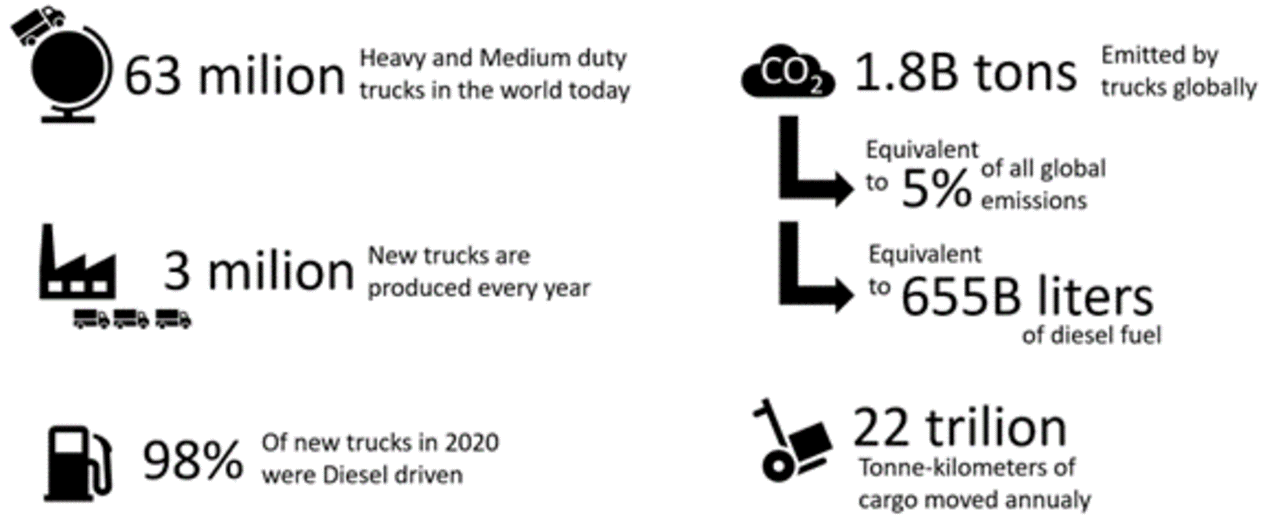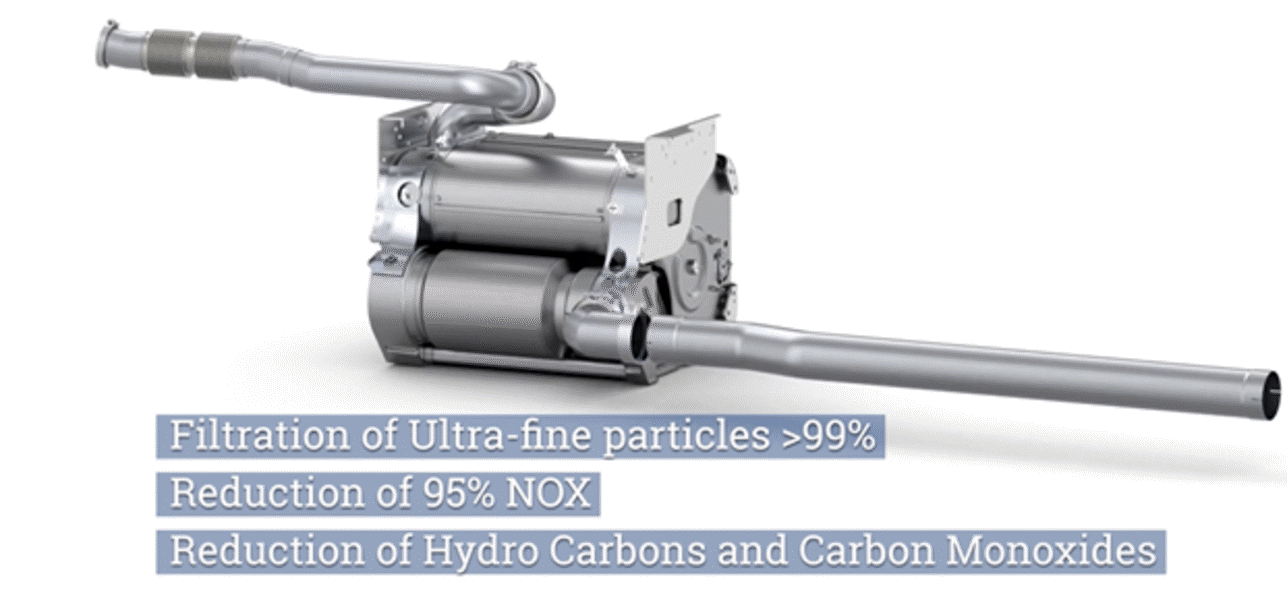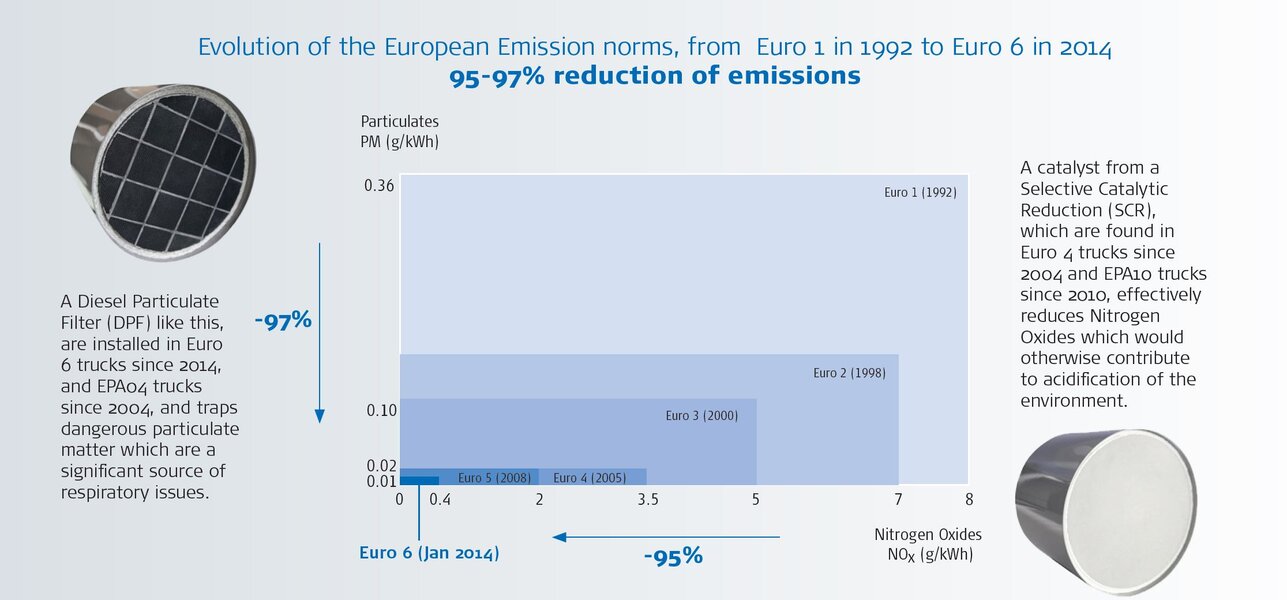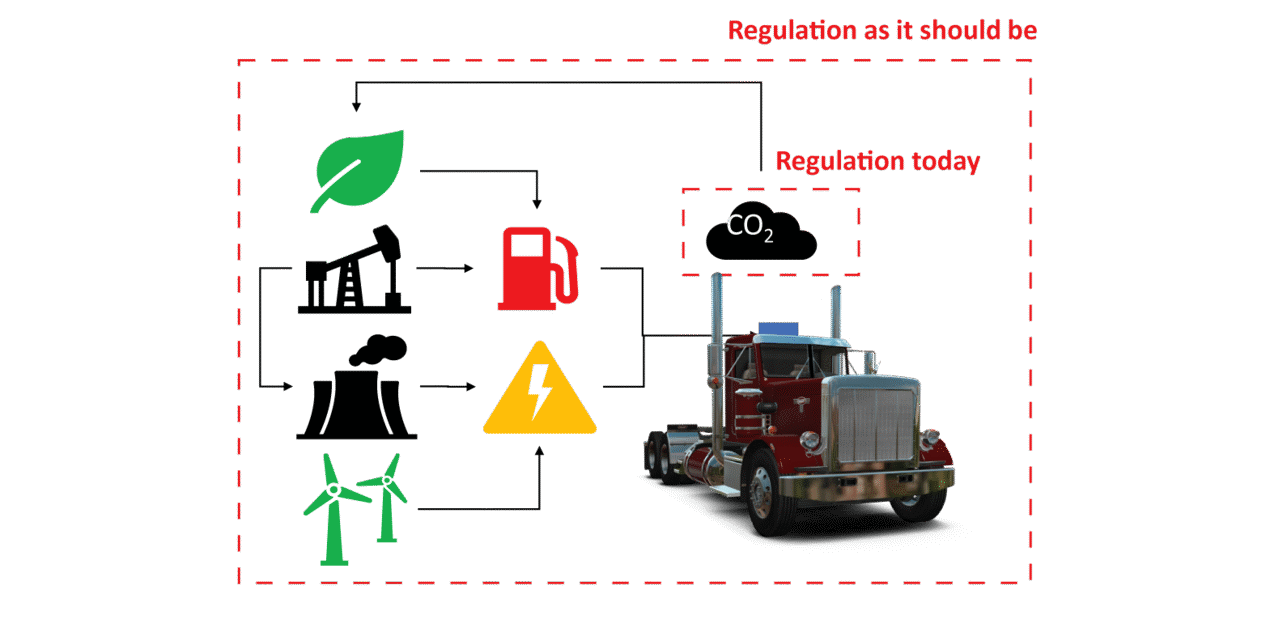- Sustainability
- Hug Your Engine
Hug Your Engine: Eclectic Approach to Decarbonization
Heavy Duty vehicles is playing a vital role in the modern society, distributing out goods, food, medicine and other products. But as the vast majority of all vehicles is still running on fossil fuels, the transport industry is also responsible for a significant share of global CO2-emissions, and vehicles that does not comply to latest emission regulations emits pollutants such as NOX and ultra-fine particle matter, which all contribute to poor air quality.
Luckily there are many solutions to start cleaning and “greening” the sector: And it doesn’t even require that much new innovation.
Earlier this year our CTO Evangelos Georgiadis had an interesting talk with Dr. Peter Kelly Senecal, the author of the book
“Racing Toward Zero – the Untold Story of Driving Green”. The book gives a much needed perspective on some of the overlooked possibilities to how the Internal Combustion Engines with modern Exhaust AfterTreatment Systems can pay a huge contribution to the global decarbonization agenda and cleaning of the air quality – and in several cases also a bigger contribution than pure Electrification will be able to within the next many decades.
Check out the summary of their talk in the video below, recapture the top 5 take-aways, and go to YouTube for the full version.


Dr. Senecal is one of the most prominent voices of what has come to be known as “the eclectic future”: An idea that a combination of the right powertrain technologies and energy solutions – Internal combustion engines, renewable fuels, electrification via batteries or fuel cells – used in diversity in the applications and regions of the world where they makes most sense, is a faster, more efficient, and more sustainable way to decarbonize the transport sector, than to pursue only one technological approach.
Take Away no. 1: Heavy Duty plays an important role in the modern world
“When we talk improving the transportation sector in terms of efficiency, human health an climate impact, Heavy Duty play a very significant role”

Take Away no. 2: Pushing current legislation is a shortcut to cleaner air
“A combination of emission regulations and industry innovation has really reduced the harmful emissions from Light Duty and Heavy Duty Commercial vehicles”


Take Away no. 3: The problem is not the engines – it’s the fuels
“We just need to figure out how to go more renewable with the fuel, just as we’re trying with the electrical grid. It’s the same kind of idea. What this also allows, is to green up the existing fleet”

Take Away no. 4: Life Cycle Analysis shows the full picture – not tailpipe emissions
“The focus needs to move away from the tail pipe. The biggest way that regulatory agencies can support fast decarbonization is to change how the regulations are done, and use Life-Cycle Analysis”
Take Away no. 5: There is no silver bullet – the future is eclectic
“We have to do everything we can today. It’s great to think about a future with fully renewable grid and batteries in all vehicles, but that’s something that’ll maybe happen in the future. And we can’t wait for the future”